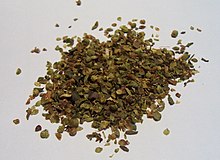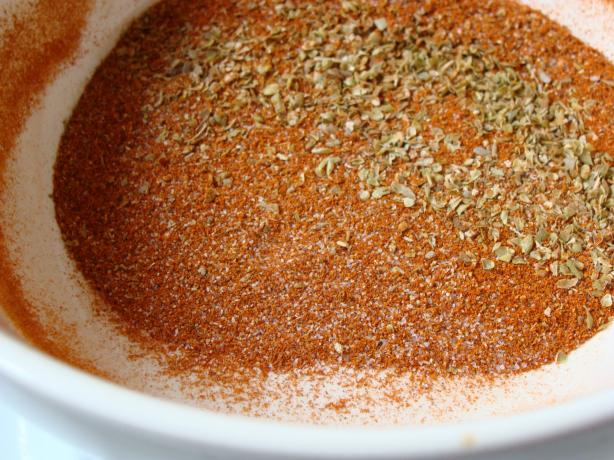Oregano
Oregano is an important culinary herb. It is particularly widely used in Turkish, Palestinian, Syrian, Greek, Portuguese, Spanish, Latin American, and Italian cuisine. It is the leaves that are used in cooking, and the dried herb is often more flavourful than the fresh.Oregano is often used in tomato sauces, fried vegetables, and grilled meat. Together with basil, it contributes much to the distinctive character of many Italian dishes.
It is commonly used by local chefs in southern Philippines when boiling carabao or cow meat to eliminate the odor of the meat, and to add a pleasant, spicy flavor.
Oregano combines nicely with pickled olives, capers, and lovage leaves. Unlike most Italian herbs,[citation needed] oregano works with spicy foods, which are popular in southern Italy.
Oregano is a widely used ingredient in Greek cuisine. Oregano adds flavor to Greek salad and is usually added to the lemon-olive oil sauce that accompanies many fish or meat barbecues and some casseroles.
In Turkish Cuisine, oregano is mostly used for flavoring meat, especially for mutton and lamb. In barbecue and kebab restaurants, it can be usually found on table, together with paprika, salt and pepper.
The dish most commonly associated with oregano is pizza. Its variations have probably been eaten in Southern Italy for centuries. Oregano became popular in the US when returning WW2 soldiers brought back with them a taste for the “pizza herb”.
Oregano is high in antioxidant activity, due to a high content of phenolic acids and flavonoids.Additionally, oregano has demonstrated antimicrobial activity against food-borne pathogens such as Listeria monocytogenes. Both of these characteristics may be useful in both health and food preservation.
The leaves and flowering stems are strongly antiseptic, antispasmodic, carminative, cholagogue, diaphoretic, emmenagogue, expectorant, stimulant, stomachic and mildly tonic. Aqueous extracts, capsules, or oil extracts of oregano are taken by mouth for the treatment of colds, influenza, mild fevers, fungal infections, indigestion, stomach upsets, enteric parasites, and painful menstruation.
It is a strong sedative and should not be taken in large doses, though mild teas have a soothing effect and ensure restful sleep. Used topically, Oregano is one of the best antiseptics because of its high Thymol content.
Oil of oregano has been found helpful against ear infections.
Practitioners of alternative medicine often recommend oregano as an herb essential to aid in the recovery of a variety of ailments.
Recipes:
mersaydees vinaigrette
Cajun seasoning
Greek marinated olives
Deb's Marinated Tomatoes













0 comments